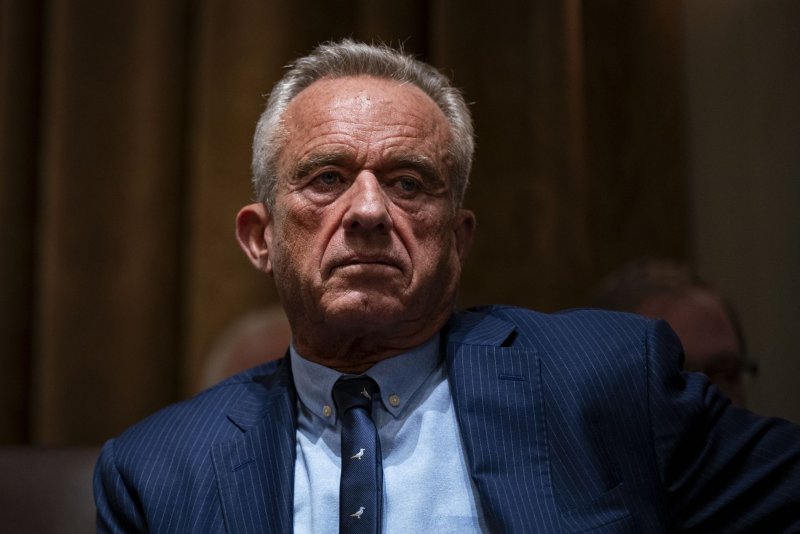On March 10, 2025, Health and Human Services Secretary Robert F. Kennedy Jr. announced a major initiative aimed at safeguarding the nation’s food supply. By ordering the Food and Drug Administration (FDA) to eliminate a long-standing regulatory loophole, RFK Jr. is taking a bold step to enhance transparency and consumer trust. The “self-affirmation” rule under scrutiny has allowed food companies to introduce new ingredients into the U.S. food supply without proper oversight.
This move is set to redefine how ingredients are approved, giving consumers a clearer understanding of what goes into their food while holding manufacturers more accountable for safety standards.
What is the GRAS Loophole?
The FDA’s “Generally Recognized as Safe” (GRAS) rule currently allows food manufacturers to determine on their own if an ingredient is safe for consumption. Known as “self-affirmation,” this process gives companies the ability to introduce ingredients into food without notifying the FDA or providing public safety data. While the FDA encourages manufacturers to file voluntary GRAS notices, it does not require them, making transparency across the food industry inconsistent at best.
To date, the FDA has reviewed over 1,000 GRAS notices and evaluates approximately 75 new submissions yearly. However, countless ingredients skip official oversight under this self-regulated system, raising concerns about the unknown risks posed to consumers.
Closing the Loophole
According to HHS Secretary Robert F. Kennedy Jr., the allowance of self-affirmation poses significant risks. “For far too long, ingredient manufacturers and sponsors have exploited a loophole that has allowed new ingredients and chemicals, often with unknown safety data, to be introduced into the U.S. food supply without notification to the FDA or the public,” said RFK Jr. during his announcement.
Under the revised guidelines, food companies will be required to publicly notify the FDA whenever they introduce a new ingredient, accompanied by safety data for review. This revision will eliminate the ability to self-affirm ingredient safety without regulator oversight, ensuring that all new additives are checked and verified before reaching consumers.
Furthermore, HHS plans to collaborate with Congress to pass legislation that would completely close the existing GRAS loophole, enhancing the FDA’s authority to regulate all food additives and improving the integrity of the country’s food supply.
The Need for Transparency in Food Supply
Secretary Kennedy’s initiative stems from growing consumer demand for transparency regarding what goes into their food. The lack of oversight under the GRAS system has created uncertainty around potentially harmful chemicals and additives. His landmark decision is driven by the idea that every American has the right to food that is free from toxins and thoroughly vetted for safety.
“Getting toxins out of our food and making our food supply transparent is critical to protecting the health of all Americans, especially our children,” RFK Jr. stated in a recent meeting with industry leaders. This bold push aims to restore public trust in food safety while reducing health risks associated with under-regulated ingredients.
Collaboration with Food Industry Leaders
Kennedy’s decision is not just a top-down directive; it includes collaboration with key stakeholders in the food manufacturing industry. This week, RFK Jr. met with executives from major food companies like Kraft Heinz, General Mills, Kellogg’s, PepsiCo, Tyson Foods, and Smucker’s to discuss “advancing food safety” and increasing transparency.
By working alongside industry leaders, the HHS hopes to create a smooth transition into the revised FDA regulations while empowering companies to showcase their commitment to consumer health.
The Role of the FDA Going Forward
Acting FDA Commissioner Sara Brenner has emphasized the agency’s commitment to protecting public health under these new provisions. “The FDA is committed to further safeguarding the food supply by ensuring the appropriate review of ingredients and substances that come into contact with food,” said Brenner. The focus on rigorous oversight will ensure the FDA plays a pivotal role in boosting consumer confidence in the integrity of their food.
The updates to the GRAS framework also align with the broader efforts to position food as a vehicle for wellness. By placing greater accountability on manufacturers, the FDA is reinforcing its mission to ensure that every food additive contributes positively to the nation’s health.
What This Means for Consumers and the Food Industry
For health-conscious consumers, this initiative is a win. Transparency on ingredients will empower individuals to make better-informed dietary choices. With a unified system for evaluating food additives, consumers can trust that what they’re eating meets stringent safety standards.
For policy makers, RFK Jr.’s directive sets a precedent for prioritizing public health. The elimination of the GRAS loophole provides a foundation for addressing other regulatory gaps in food safety while reaffirming the government’s responsibility to safeguard its citizens.
For food industry professionals, this shift presents both a challenge and an opportunity. Though it may require adjustments in how companies introduce new ingredients, it also incentivizes transparency and innovation, improving consumer trust and brand loyalty.
The Road Ahead
Secretary Kennedy’s push to close the GRAS loophole is a historic step toward fostering accountability and transparency in the U.S. food system. By working closely with Congress, the FDA, and food manufacturers, this initiative aims to ensure that every ingredient in the national food supply is vetted for safety and quality.
Whether you’re a consumer, policy maker, or industry professional, this directive underscores the importance of collaboration and high standards in protecting public health.
“Holding food companies to higher levels of transparency is not just about regulations; it’s about protecting lives and restoring trust in what we eat,” said Kennedy. By making strides to “Make America Healthy Again,” RFK Jr. has positioned himself as a leader in the quest for a safer, healthier future.








